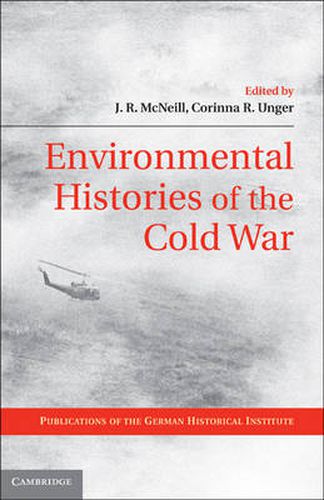Readings Newsletter
Become a Readings Member to make your shopping experience even easier.
Sign in or sign up for free!
You’re not far away from qualifying for FREE standard shipping within Australia
You’ve qualified for FREE standard shipping within Australia
The cart is loading…






Environmental Histories of the Cold War explores the links between the Cold War and the global environment, ranging from the environmental impacts of nuclear weapons to the political repercussions of environmentalism. Environmental change accelerated sharply during the Cold War years, and so did environmentalism as both a popular movement and a scientific preoccupation. Most Cold War history entirely overlooks this rise of environmentalism and the crescendo of environmental change. These historical subjects were not only simultaneous but also linked together in ways both straightforward and surprising. The contributors to this book present these connected issues as a global phenomenon, with chapters concerning China, the USSR, Europe, North America, Oceania, and elsewhere. The role of experts as agents and advocates of using the environment as a weapon in the Cold War or, contrastingly, of preventing environmental damage resulting from Cold War politics is also given broad attention.
$9.00 standard shipping within Australia
FREE standard shipping within Australia for orders over $100.00
Express & International shipping calculated at checkout
Environmental Histories of the Cold War explores the links between the Cold War and the global environment, ranging from the environmental impacts of nuclear weapons to the political repercussions of environmentalism. Environmental change accelerated sharply during the Cold War years, and so did environmentalism as both a popular movement and a scientific preoccupation. Most Cold War history entirely overlooks this rise of environmentalism and the crescendo of environmental change. These historical subjects were not only simultaneous but also linked together in ways both straightforward and surprising. The contributors to this book present these connected issues as a global phenomenon, with chapters concerning China, the USSR, Europe, North America, Oceania, and elsewhere. The role of experts as agents and advocates of using the environment as a weapon in the Cold War or, contrastingly, of preventing environmental damage resulting from Cold War politics is also given broad attention.